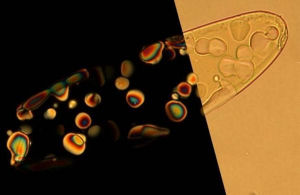
A fascinating experiment into personality and social interaction in which millions of software agents will potentially evolve their own culture is about to be switched on by five European research institutes. The NEW TIES project will be a virtual world populated by randomly generated software beings, capable of developing their own language and society.
The project has brought together AI experts, computer scientists, sociologists and linguists to study natural processes (like language development), and to advance the construction of collective artificial intelligence. “While individual, or machine, learning and evolutionary behavior have been quite well studied, social learning is still an unknown quantity,” says project coordinator Gusz Eiben, an AI professor at the Vrije Universiteit, Amsterdam. “For the linguists and sociologists, the main motivation is to study existing processes in societies and languages.
The NEW TIES world will initially be running across a grid of 60 computers. The virtual world will support about 1,000 agents (artificial personalities) at first, building eventually to millions – each one a unique entity with its own characteristics, including gender, life expectancy, fertility, size, and metabolism. The agents will each have their own distinguishing characteristics to make them recognizable. Some of their traits will be inherited from their parents, and passed on to their offspring, but they will also be able to learn from their own experiences and from each other.
“We are not hardwiring agents,” stresses Eiben. “We are not programming how they behave. Each entity has its own ‘controller,’ analogous to a brain. And because we want to create an interesting controller, we have to produce a challenging world – otherwise there would be no impetus for development. So, in one scenario, we have created a world with seasons – so that the agents have to learn to find, transport and store food. And there are two rival groups, so they will have to learn to tell friend from foe.”
The artificial life-forms will have the ability to communicate, using a native vocabulary of a few simple words like, ‘food’, ‘near’, and ‘agent’. “One interesting question is how they will communicate,” says Eiben. “Naturally, the linguists want to see how they develop a spoken language, but for the AI researchers we will also test to see if there are possible alternatives – telepathy, for example.” Some basic rules will also be given, along the lines of, “if it’s hot, it burns,” but the agents are expected to add to the rule set as they discover new laws of nature.
Eiben said he hoped to eventually scale the world up to 5,000 computers, supporting a much larger population of agents, which he believes will kick-start complex emergent behaviors. Until then, he points to some intriguing results obtained from other platforms. His own findings have established that aggressive behavior increases in agent-worlds as life becomes easier, while an ideal world (ideal meaning maximum survival) has two main attributes: flexibility and mobility.
The project team is also working on a state-of-the-art visualization for its interface, to make its agents more comprehensible to a public well versed in The Sims and other computer realities.
Check out the NEW TIES website for more information about this project.


















Comments are closed.